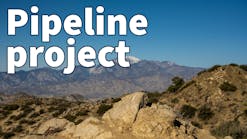MALÉ, Maldives - A new Integrated Water Supply System has been inaugurated on the Maldivian island of Thoddoo to harness rainwater harvesting and seawater desalination to protect aquifers from overexploitation.
The new system is expected to provide a yearly mean rainwater supply of 8619 m3 to the 2,000 inhabitants of the island.
The Government of Maldives covered nearly 70%, or $1 million, of the system costs.
The new water supply system was developed under an Integrated Water Resources Management demonstration project led by the UN Environment Programme, the UN Development Programme and the UN Office for Project Services and financed by the Global Environment Facility (GEF).
Like many other Small Island Developing States the Maldives have to meet the needs of a growing population with a very limited supply of clean drinking water. Inhabitants of the archipelago depend mainly on rainwater and groundwater aquifers to meet their needs.
The residents of Thoddoo Island in the Maldivian Alif Alif Atoll rely on a small lens - a thin layer of freshwater floating on top of dense saltwater - for drinking, cooking, washing and irrigation of crops.
Agriculture, using about 75% of the island's surface, seriously threatened the groundwater aquifer, which is extremely susceptible to contamination from wastewater and agricultural chemicals and to saltwater intrusion caused by overexploitation.
It has been a common practice to mix fertilisers and other agricultural inputs in the island's shallow wells and pump the water for irrigation. Ultimately, this resulted in high salinity and pollution levels, with associated health risks for the population.
In the capital city of Malé desalinated water is supplied to households via a metred network, but on most of the outlying islands water is drawn from shallow, hand-dug wells and household- or community-owned rainwater tanks.
Often, transportation of water across and between islands is needed, especially during the dry months of March and April.
The demonstration project is part of a bigger initiative, the "Integrated Water Resource Management in Atlantic and Indian Ocean Small Island Developing States Project", funded by GEF to promote integrated water management in six island states: Maldives, Seychelles, Mauritius, Comoros, Cape Verde and São Tomé and Príncipe.
###
Read more
Cost and energy positive desalination on the Maldives
Desalination dependence highlighted by Maldives water crisis



